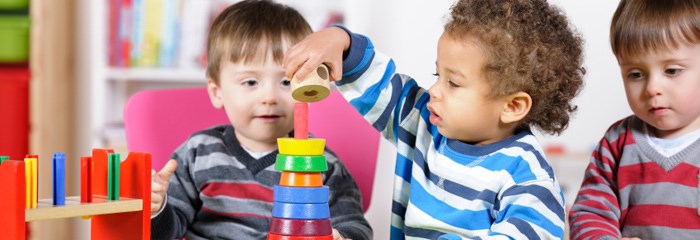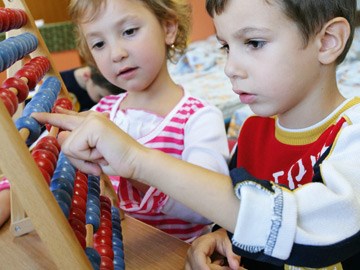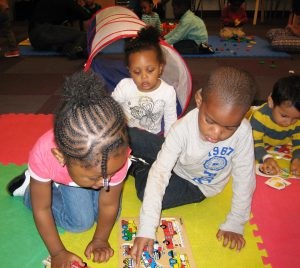
There is a growing movement in early childhood education that prioritizes teacher-directed instruction over imaginative play, such as inventing new worlds out of blocks and art materials, storytelling, and navigating friendships and social roles through dress-up and dramatic play.
In an effort to make sure that children are prepared for school, this educational philosophy emphasizes more structured academic activities (i.e. rote learning of letters and numbers), more direct teacher-led instruction, and basic skills over the value of play.

While the intention is to equip children for the academic rigors of school as early as possible and prepare them to thrive in a competitive economy, this rush into structured academic learning appears misguided. There is little evidence that this approach improves long-term achievement and may, in fact, impede children's emotional and cognitive development and turn school into something stressful that negatively affects children's attitudes toward learning.
As cited in the New York Times article "Let the Kids Learn through Play," research demonstrates that children who received more early teacher-led instruction actually fared worse later in school and had significantly lower grades than those who had been allowed more opportunities to learn through play. According to Rebecca A. Marcon, a psychology professor at the University of North Florida, children's progress "may have been slowed by overly academic preschool experiences that introduced formalized learning experiences too early for most children's developmental status."
Furthermore, early childhood care and education settings that emphasize teacher-directed, academically-oriented activities actually socialize children for later success in occupations requiring conformity to rules and routines rather than ones that require innovation and leadership; thereby producing more followers than inventors.

On the other side of the debate is a growing group of educators, neuroscientists, psychologists, and economists (including a Nobel Prize winner) whose research supports the critical value of play. They maintain that pretend play encourages interaction, communication, and cooperation. Through play, children learn about the world around them; build self-esteem; form healthy relationships; and develop some of the most important skills they will need when entering kindergarten. In addition, learning through play promotes executive function skills, such as attention, problem-solving, perseverance, and self-control that educators and researchers identify as some of the most important skills for success in school and life.
At Excellence Baby Academy, we highlight the importance of play throughout the entire program. Many parents have not had much opportunity to engage in imaginative and other play when they were younger, in part, because its value was often minimized. Because of this unfamiliarity, parents can be uncomfortable playing freely on their child's level and allowing children unstructured time to direct their own pretend play.
To convey the developmental significance of play, we provide ample opportunities for the parents to observe in the child development room as well as during our family meals and home visits so that they can experience the benefits of play firsthand. The parents also have many opportunities to be creative and let their imaginations flourish during the toy-making component of our group meetings.
This artistic outlet is beneficial for the parents as it reduces stress and provides a fun and encouraging way for them to become more comfortable engaging in their children's play. The value of play is reinforced during these weekly toy-making sessions and our monthly home visits when we review the developmental toys the parents create and model and discuss how to use them to best support their children's development.
In the past decade, there has been a push for more "academic" education in the United States starting earlier and earlier. This has led to federal policies and programs, such as No Child Left Behind and Race to the Top, which have resulted in dramatically more testing and "teaching to the test." However, even President Barack Obama realizes too much testing makes education boring and can lower children's motivation to learn.
In a Facebook video message, the President acknowledged hearing from parents who worry about "too much testing, and from teachers who feel so much pressure to teach to a test that it takes the joy out of teaching and learning" to which he responded "I want to fix that." A good start to fixing this would be to let young children learn through play.
To read the New York Times article about the importance of play, please go to https://www.nytimes.com/2015/05/17/opinion/sunday/let-the-kids-learn-through-play.html



